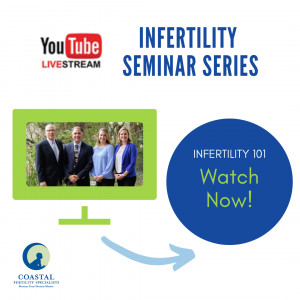Clinicians are frequently asked to provide advice to patients concerning their underlying fertility. Patients, unfortunately, frequently go to “Dr. Google” and find what I would consider less than evidence-based approaches towards their fertility. For example, I am frequently asked by patients whether or not they should put egg whites in their vagina to augment their cervical mucus? Other common questions relate to basal body temperature charts, and LH kits which frequently do not show ovulation despite regular menstrual cycles. I half-kiddingly tell patients that if I were the President of the United States, I would abolish ovulation predictor kits altogether…
Fortunately, there is a national body we can go to for help, which is the American Society for Reproductive Medicine. In the fall of 2013, they published a committee opinion titled, “Optimizing Natural Fertility” which was designed primarily for physicians. It discusses the impact of ovarian aging, but also talks about evidence-based medicine’s thoughts about the frequency of intercourse, the timing of intercourse, and ways in which patients can optimize fertility.
The summary, ovulation predictor kits have not been shown to improve natural cycle fecundity; nor have basal body temperature charts. At some level, ovulation predictor kits tend to add stress and “programed” sexual relations which may actually lower fertility due to false negative results. The recommendation is intercourse every 2 to 3 days during the week of ovulation, which for most women with 28-day cycles is between Day 10 to Day 17 of their cycle.
Beyond appropriate weight management, there is little to no evidence regarding diet and its impact on fecundity. Women, of course, should be advised to take a Folic Acid supplementation, at least 400 mcg per day to reduce neural tube defects. Tobacco use has a profound decrease in pregnancy rates and smoking cessation should be encouraged. Alcohol has similar impacts, and it is typically recommended that a woman trying to conceive should drink less than one alcoholic beverage per day.
Caffeine consumption can be a challenging discussion. Overall, moderate caffeine consumption of one to two regular-sized cups of coffee per day is recommended as the maximum upper limit.
Vaginal lubricants have been shown in several studies to decrease fertility by decreasing sperm motility. There are some newer products which are available, such as Pre-Seed and ConceivEase, which have demonstrated no adverse impacts on sperm parameters. And yes, as you might expect, I recommend against egg whites. : )
Related Posts

February 27, 2017
Endometriosis and Infertility

November 07, 2017
Why do Chromosomally Normal Embryos Not Implant in the Uterus?

March 19, 2020
Why Your Fertility is Safe in Our Hands

January 25, 2021
Infertility 101: All Your Questions Answered

February 19, 2021
Coastal Fertility Specialists Opens a State-of-the-Art Office in Nexton



